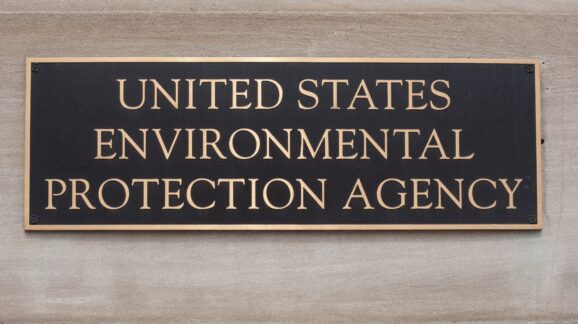Senators Should Reject WOTUS Overreach

Photo Credit: Getty
The Senate is soon expected to consider legislation that would reject the Biden administration’s final rule defining “Waters of the United States,” otherwise known as WOTUS. The House has already voted, 227-198, rejecting the rule, with the support of nine Democrats.
For decades, the Environmental Protection Agency (EPA) and the U.S. Army Corps of Engineers (Corps) have tried to define WOTUS in a vague and overbroad manner, covering almost every water imaginable, and even what most people would consider to be dry land. The WOTUS definition is critical because it informs what waters can be regulated under the Clean Water Act (CWA).
Currently, the United States Supreme Court in Sackett v. EPA is poised to publish an opinion before July that could finally provide much-needed clarity on the WOTUS definition.
Yet instead of waiting for the Supreme Court to issue its opinion, the Biden administration inexplicably published its final WOTUS rule on January 18th, creating yet even more confusion for property owners. The EPA and Corps moved forward with their rule even though the Court’s opinion will likely render most (if not all) of the rule moot.
Central to the Biden rule is the unworkable significant nexus test articulated by Justice Anthony Kennedy in Rapanos v. United States. As applied in the final rule, tributaries, wetlands, and even intrastate waters could be regulated when they “either alone or in combination with similarly situated waters in the region, significantly affect the chemical, physical, or biological integrity” of certain types of waters (e.g. traditional navigable waters).
Imagine being a property owner and trying to figure out whether a water on your property meets this definition. There’s often no way to know what will be regulated because this definition is so vague and subjective, and case-specific. Even experts and enforcement officials would disagree on when such a subjective standard has been met when applied to a specific situation. Despite this uncertainty, a failure to comply with the CWA requirements can trigger severe civil and criminal penalties.
A decade after Rapanos, Justice Kennedy acknowledged the problems with the application of the CWA, explaining, “The Clean Water Act is unique in both being quite vague in its reach, arguably unconstitutionally vague, and certainly harsh in the civil and criminal sanctions it puts into practice.” The Biden rule maintains, and likely exacerbates, this untenable situation under the CWA.
For Senators, rejecting the Biden WOTUS rule should be an easy proposition because the rule:
Jumps the Gun. The new rule doesn’t wait for the Supreme Court to help clarify the WOTUS definition, which will likely happen within a matter of 2-3 months.
Ignores the State Role Under the CWA. The rule continues the EPA and Corps’ power grab to act more like local zoning boards than federal regulators, again seeking to regulate almost every water imaginable. This includes regulating ephemeral waters, which can be depressions in land that are dry almost every day, but may hold water a few days of the year due to a heavy rainfall. Congress made it expressly clear in the CWA that the states are supposed to play the lead role in addressing water pollution. Yet the agencies, through this new rule, continue to ignore this respect for federalism by seeking to usurp state and local power over water regulation.
Creates More Confusion. Instead of providing clarity to help property owners through clear standards, such as those outlined by Justice Antonin Scalia and the plurality in Rapanos, the new rule embraces vague and subjective standards. As a result, property owners will continue to deal with WOTUS horror stories, such as in the Sackett case, where property owners unwittingly find themselves the target of federal officials.
The good news is that the Senate legislation, a resolution of disapproval under the Congressional Review Act, will only require the support of a majority of Senators. There should be the requisite support for such legislation. The House, as mentioned, has already passed its resolution.
Of course, President Biden has promised to veto the resolution of disapproval. However, both the House and Senate rejecting the Biden WOTUS rule would send a clear message that Congress has had enough with these EPA and Corps’ WOTUS power grabs. That’s a legislative message that is way past due.